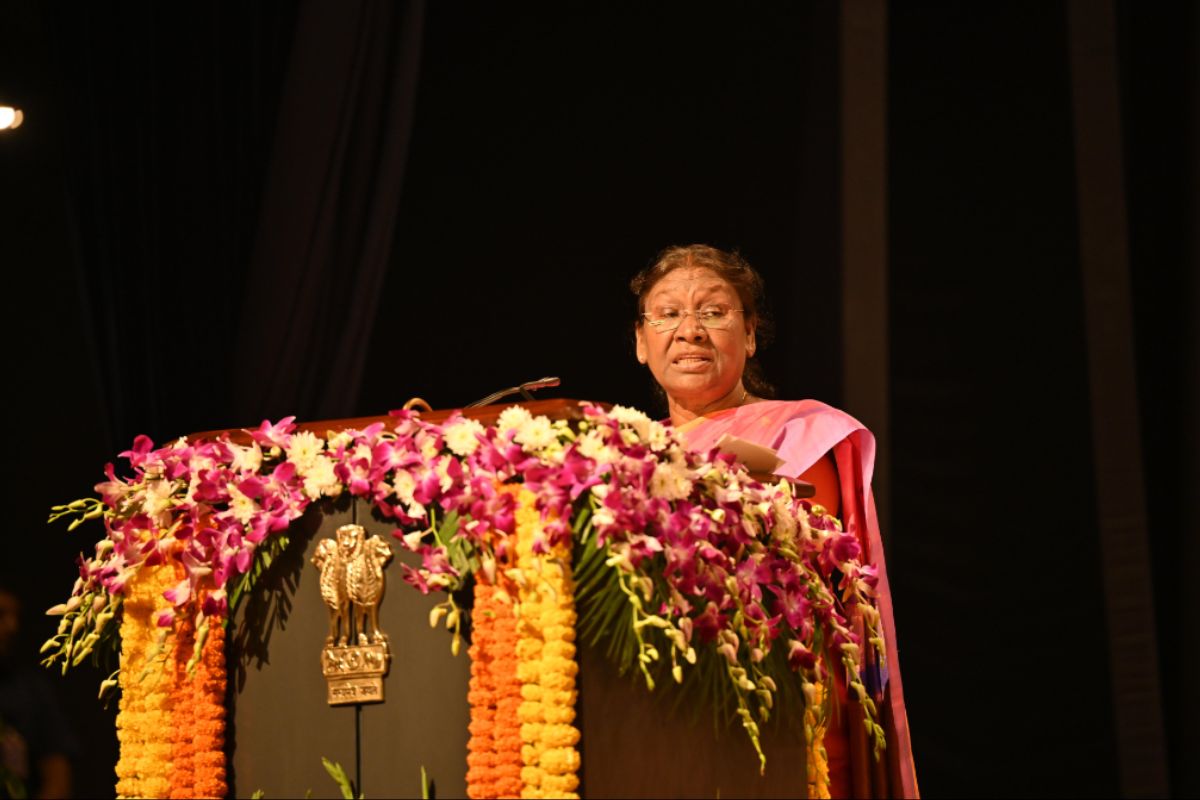President Draupadi Murmu will visit Ram Lalla on May 1
President Draupadi Murmu is likely to visit Ayodhya and have darshan of Ram Lalla on May 1.
The President said that agricultural research and technology development has enabled India to multiply production of food grains, horticulture, fisheries, milk and eggs many times since 1950-51.

President Droupadi Murmu on Tuesday inaugurated the First Global Symposium on Farmers’ Rights here and said the Indian law on farmers rights is worthy of emulation by the world, as it allows the farmers rights to use, re-use, save, share and sell the unbranded seeds of a registered variety.
The symposium was organised by the Secretariat of the International Treaty on Plant Genetic Resources for Food and Agriculture (ITPGRFA) of the Food and Agriculture Organization (FAO), Rome, and hosted by the Ministry of Agriculture and Farmers Welfare.
The President said India had taken a lead in introducing the Protection of Plant Varieties and Farmers Rights Act (PPVFR) 2001 which is aligned to the ITPGRFA to protect the farmers.
Advertisement
“My country provides a range of rights to farmers including use, re-use, save, share and sell the unbranded seeds of a registered variety. Besides, Indian farmers can register their own varieties which get protection,” she said.
Such an Act can serve as an excellent model worthy of emulation for the entire world. It gains further importance in the wake of challenges posed by climate change and also to fulfil the Sustainable Development Goals (SDG) of the United Nations, she said.
“The climate change challenge has put an onus on conservation of our traditional farmers’ varieties including those of millets which are not only endowed with inherent tolerance to various stresses on our ecosystem but also hold within themselves the nutritional profile that could be the key in providing a solution to the food and health requirements of a large proportion of human and livestock population,” she said.
“The declaration of the year 2023 as the Year of Millets by the United Nations is a step in this direction,” the President said.
“This symposium, the very first of its kind in the world, provides a golden opportunity to the world fraternity in realigning their priorities and programmes according to the needs of humanity and to make a common commitment,” Mrs Murmu said.
“I hope this Symposium would be a milestone in further taking significant steps towards our commitment for fulfilment of farmers’ rights world over,” she said.
Lauding the farming fraternity of the world, the President said it is the world’s foremost conserver and a true guardian of crop diversity.
The farmers are bestowed with exceptional power and responsibility and that “we all must appreciate farmers’ endeavour to protect and revive many varieties of plants and species whose existence is crucial to all of us,” she said.
The President said that India is a mega-diverse country with only 2.4 per cent of the world’s land area but accounts for 7-8 percent of all recorded species of plants and animals.
In terms of biodiversity, India ranks as one of nations endowed with the widest range of plants and species. She added that this rich agro-biodiversity of India has been a treasure trove for the global community at large.
She said that Indian farmers have toiled and enterprisingly conserved local varieties of plants, domesticated wild plants and nurtured traditional varieties that have provided building blocks for crop breeding programmes and this has ensured food and nutritional security for human beings and animals.
The President said that agricultural research and technology development has enabled India to multiply production of food grains, horticulture, fisheries, milk and eggs many times since 1950-51, thus making a visible impact on the national food and nutrition security.
She expressed confidence that technology and science can serve as an effective protector and enhancer of heritage knowledge.
Advertisement